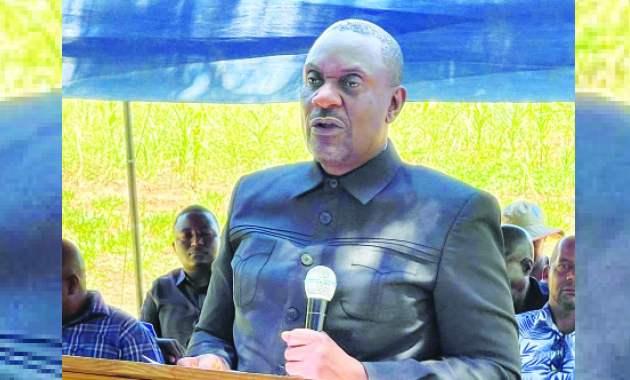From the bush to Champions League

Lovemore Dube, [email protected]>
FROM the jungle fighting for the liberation of Zimbabwe to the African Champions League football, reads the story of Charles Ndebele.
Independence thrust this Bulawayo born former Zpra cadre into football greatness that he would not have imagined before 1980. When he left for the war in 1976, Ndebele had toiled for recognition in the lower division football ranks where priced returns were probably playing for big teams like Bulawayo Wanderers, Sables, Highlanders, Zimbabwe Saints, Eastlands and Rangers, who were the big clubs in the city.
There was also the attraction to play for company sponsored teams and land a job.
Ndebele believes before Independence he did not see himself going that far in the game, but things changed six years later when he was at the foot of the foundation of Black Rhinos. The late former army commander Solomon Mujuru decided that a football team be formed from within.
Ndebele who had on his return renewed his passion for the game by playing at Gwayi River Mine Assembly Point as a winger was attested into the Zimbabwe National Army. His first posting was 2.2 Battalion in Murewa.
“A signal was sent to all the army battalions that they should send their best players for trials. I was among those players from my battalion. I made the grade in a very tight selection process under our first coach, Shepherd Murape who had also coached Dynamos and the national team,” said Ndebele.
Forty hopefuls were selected and sent to Harare where the process of building Black Rhinos started. There were some ex-combatants who made the cut and the most prominent being Jerry Chidawa, who went on to form a formidable attack with Maronga Nyangela, Jimmy Mbewe, Stanley Ndunduma and Stix Mtizwa.
Ndebele won his place in the squad as a right winger, but after a few training sessions, he got the shock of his life in the game.

“Most of the times as we warmed up, I would fool around and goal keep, and Murape must have been watching my reflexes and ball handling skills. He asked me to go in goal, and I became the team’s first goalkeeper and guided Rhinos to the Northern Region Division One title in 1983. We would later be joined by Japhet Mparutsa, a goalkeeping legend, a man I learnt so much from,” said Ndebele.
He was active when Rhinos won the 1984 championship and a ticket to play in the Africa Cup of Club Champions, now the Caf Champions League. The club also won the Independence Cup.
“Winning the league championship despite playing second fiddle to Japhet, was big. I had a few games whenever the Short Cat was called up to the national team and we were fixtured to play league games.
“Honestly, I never dreamt of playing football after going to the struggle, as my mind was in liberating our people. Even at the end of the war, what I was happy about was that we were now free. Independence unveiled hidden talent in me and I was to play for Rhinos up to 1987, then I moved back to Bulawayo,” said Ndebele.
In Bulawayo he played for Bulawayo Jumbos, now called Indlovu Iyanyathela.
He played up to 1997, retiring at the age of 41. Ndebele is happy to have played for the army side alongside some people he shared a vision to liberate Zimbabwe. Chidawa and Collen Dube are the other ex-combatants who stayed for long with Rhinos and won medals.
In 1984, they won the league and cup double. Other comrades who had made the grade before being knocked by the civilian recruitment drive of early 1984 include Droment Chirova, Collen Dube, Derrick Sachiti and Robert Ngwenya.
Among some of the players he played with at Rhinos are Gift Makoni, Edward Dube, Ndunduma, Mbewe, Mtizwa, Fanwell Nyamukapa, Simon Mugabe, Maronga Nyangela, William Chikaura, Hamid Dhana, Lovemore Chikunha, David Mukahanana, Edward Matsika, Sammy Mavenyengwa, Mike Abrahams, Lesley Kamuyoyo, Gift Madzeka, Jimmy Mungate, Mugove Munyorovi, Phortifah Munhenga, Lazarus Pararayi, Enerst Mutano and Pio Matongo.










Comments